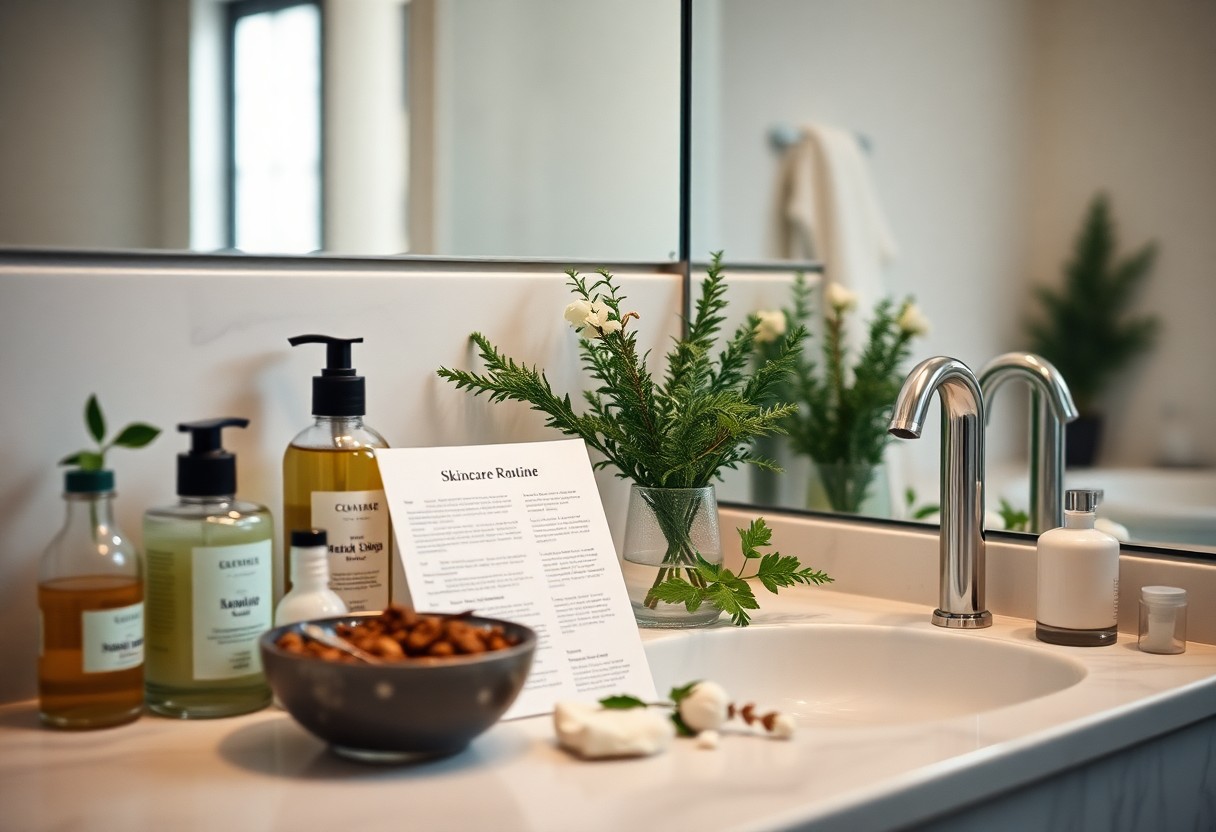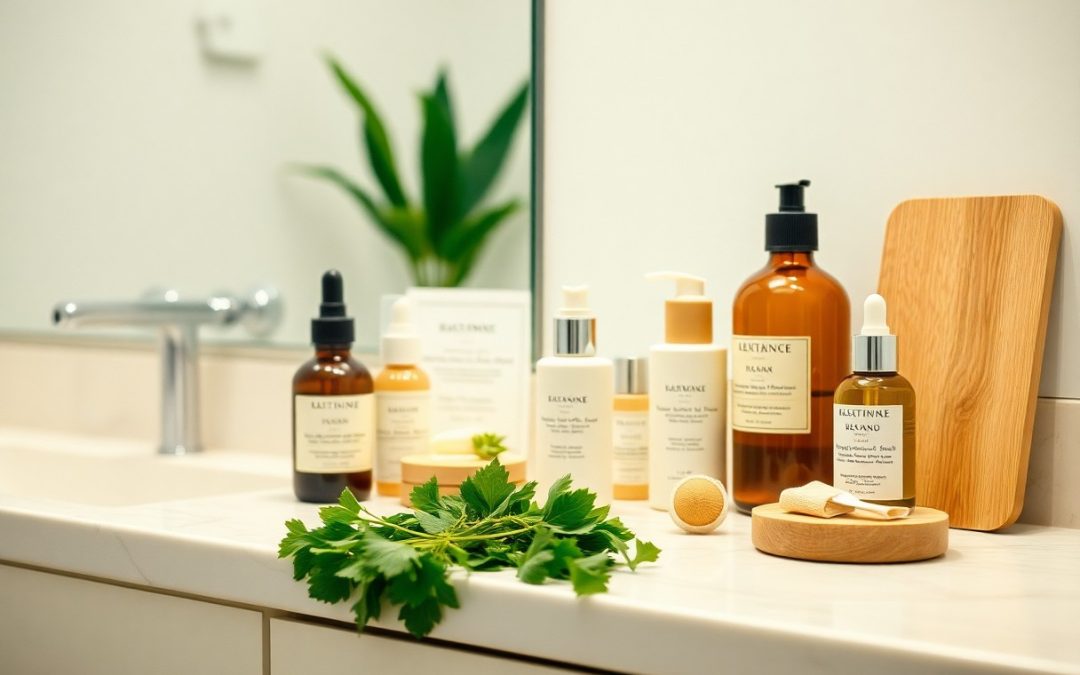There’s a range of effective solutions to help you clear your skin and achieve that radiant complexion you desire. From adjusting your skincare routine to incorporating lifestyle changes, you have numerous options at your disposal. Understanding the causes of your breakouts is key to finding the right approach for your individual needs. With the right strategies, you can take charge of your skincare journey and enhance the health of your skin.

Understanding the Causes of Acne
While you may associate acne primarily with teenage years, various factors can cause breakouts well into adulthood. Identifying these factors is vital for managing your skin effectively. From hormonal shifts to dietary influences, awareness of these triggers can pave the way for clearer skin and a personalized treatment regimen.
Hormonal Factors
Above all, hormonal fluctuations play a significant role in your acne development. These changes can arise from various life stages or conditions, leading to increased oil production. Consider these key points:
- Menstrual cycles may trigger flare-ups.
- Conditions like PCOS can exacerbate hormonal acne.
- Medications can alter hormone levels and affect your complexion.
Perceiving the relationship between your hormones and acne can help you adjust your skincare routine accordingly.
Environmental Influences
For many, environmental factors can significantly impact the health of your skin. Elements like pollution, humidity, and climate conditions may contribute to breakouts.
Understanding the environment’s impact is vital for maintaining your skin’s balance. Pollutants and excess moisture can clog pores, while dry or harsh climates may lead to irritation and dryness. Regularly cleansing your face, especially after outdoor activities, helps reduce these triggers. Additionally, consider using non-comedogenic products to shield your skin from environmental stressors while keeping your pores clear and clean.

Skincare Routine Essentials
There’s no one-size-fits-all approach to a skincare routine, but certain crucials can significantly improve your chances of achieving clear and healthy skin. Start by understanding your specific skincare needs and choose products that align with your skin type, whether it’s oily, dry, or combination. Regularly incorporating the right ingredients can make a noticeable difference in combating issues like adult acne and maintaining balanced skin.
Cleansing Practices
One of the most important steps in your skincare routine is cleansing. Use a gentle, non-comedogenic cleanser suited for your skin type, and cleanse your face twice daily—morning and night. This helps to remove dirt, makeup, and excess oils that can clog pores and lead to breakouts.
Moisturizing Tips
Before applying any treatments, ensure your skin is well-hydrated. Choose a moisturizer that is non-comedogenic and specifically formulated for your skin type to prevent breakouts. Look for ingredients like hyaluronic acid or glycerin to boost hydration without clogging pores.
- Apply moisturizer immediately after cleansing to lock in moisture.
- Consider a lightweight gel formulation if you have oily skin.
- For dry skin, a thicker cream with beneficial fatty acids may be ideal.
- The right moisturizer will enhance your skin’s barrier and help prevent further breakouts.
And don’t overlook the importance of layering your skincare products correctly. Always apply serums before your moisturizer for optimal absorption, and consider incorporating a targeted treatment for acne into your routine.
- Use a spot treatment containing salicylic acid or benzoyl peroxide for blemishes.
- Exfoliate regularly, but not excessively, to maintain smooth skin.
- Stay consistent with your routine for the best results.
- The key to clear skin lies in a personalized and consistent approach to skincare.
Treatment Options
Any journey to clear your skin begins with understanding the range of treatment options available. From simple over-the-counter solutions to more targeted prescription medications, there are effective strategies you can adopt to achieve a clearer complexion. Consulting with a dermatologist can help you tailor your approach to fit your unique skin type and needs.
Over-the-Counter Solutions
Above the many options, over-the-counter products often contain active ingredients like benzoyl peroxide and salicylic acid, which help reduce breakouts by targeting acne-causing bacteria and unclogging pores. These products can be easily accessed and, with regular use, can lead to significant improvements in your skin clarity.
Prescription Medications
On the other hand, prescription medications are stronger and specifically formulated to tackle more persistent or severe acne. They may include topical retinoids, antibiotics, or hormonal treatments that can balance the skin’s oil production. Such medications are generally recommended when over-the-counter options don’t yield results, offering you targeted relief.
Over-the-counter products can set a solid foundation for your journey, but when acne persists, prescription medications can help manage more difficult cases. For example, topical retinoids work by promoting skin cell turnover, while oral antibiotics reduce inflammation and acne-causing bacteria. Your dermatologist can guide you in finding the most suitable medications for your skin concerns, ensuring you create a personalized plan for clear, radiant skin.
Lifestyle Modifications
Not only products and treatments impact your skin; your daily habits can also play a significant role in achieving a clear complexion. Integrating certain lifestyle modifications can enhance your results and help maintain smooth, healthy skin. Consider factors such as your diet, stress levels, and skincare routine to create a comprehensive approach for clearer skin.
Dietary Changes
Above all, your diet can significantly influence the condition of your skin. A diet high in processed foods and refined carbohydrates may lead to acne breakouts. By opting for whole grains, fruits, and vegetables, you can provide your skin with crucial nutrients and help reduce potential flare-ups.
Stress Management Techniques
Behind your skin issues, stress often lurks as an underlying factor. It can trigger hormonal changes that increase your risk for breakouts. Implementing stress management techniques like mindfulness, meditation, and regular exercise can be beneficial. Finding time for self-care activities such as yoga or breathing exercises can further help lower your stress levels, promoting not only mental wellness but also healthier skin.
Modifications to your daily routine are crucial for managing stress effectively. Consistent physical activity, good sleep hygiene, and maintaining social connections can all contribute positively to your emotional well-being. Establishing time for relaxation and reflection in your day can have a profound impact on your skin, often reducing the incidence of acne and other skin-related concerns. Prioritize self-care, and you will likely notice an improvement in your skin as well.
The Importance of Consistency
Once again, understand that achieving clear skin is not merely a matter of using the right products; it also requires a consistent routine. Dermatologists emphasize giving your skin time to adjust to new treatments, ideally around six to eight weeks, to gauge effectiveness. Switching between various products, especially ones with active ingredients, can lead to irritation and exacerbate breakouts. Maintaining a dedicated and simple regimen allows you to identify what truly benefits your skin over time, ensuring long-lasting results and healthier complexion.
When to Seek Professional Help
After trying various over-the-counter treatments without success, it’s time to consider seeking professional help for your acne. If you’re experiencing persistent breakouts that continue into your twenties, thirties, or even later, consulting a dermatologist can provide you with tailored solutions. Dermatologists can diagnose underlying issues contributing to acne, such as hormonal changes or certain medications, and recommend effective treatments. If your acne is causing scarring or significantly impacting your self-esteem, professional guidance can help you achieve clearer, healthier skin.
Effective Solutions to Clear Your Skin
So, to achieve clear and healthy skin, focus on identifying the underlying causes of your acne and address them with tailored solutions. This includes simplifying your skincare routine, choosing the right products, and maintaining a balanced diet. Regularly cleanse your skin, stay hydrated, and manage stress levels to help promote a clearer complexion. By taking these proactive steps, you can enhance your skin health and boost your confidence.


